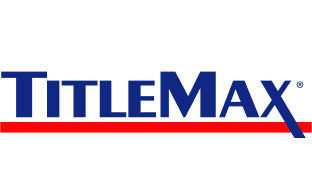Discover how CleverTap’s Message Archiving ensures compliance with trust-led messaging, end-to-end encryption, and safeguards communications.
Privacy compliance isn’t just a legal obligation; it’s a cornerstone of business integrity. Neglecting it is like driving without a seatbelt—seemingly manageable at first but leading to catastrophic consequences and hefty financial losses.
Moreover, failing to adhere to these regulations has resulted in significant financial penalties for leading brands, which have collectively faced over €1.5 billion in fines under General Data Protection Regulation (GDPR) and more than $100 million under California Consumer Privacy Act (CCPA). These financial repercussions highlight the critical importance of effective compliance strategies.
How effective are your compliance strategies? Compliance typically involves two key components:
Component #1 emphasizes a proactive approach, wherein brands remain informed and implement processes that adhere to various regulatory requirements.
Component #2 adopts a reactive stance, necessitating that brands are prepared for audits and equipped to address customer complaints by maintaining the requisite evidence.
While executing the first component can be challenging, the second component often proves to be even more demanding. As marketing practices come under increased scrutiny, it is essential to maintain comprehensive documentation and ensure that your compliance strategies are both effective and responsive to consumer concerns.
Prioritizing compliance and transparency is crucial, as these elements directly influence customer engagement and shape the overall perception of your brand. Let’s discuss how you can effectively integrate proactive and responsive strategies into your compliance framework to ensure a thorough response to regulatory demands.
Market Challenges
As consumer awareness increases, so does scrutiny of marketing practices. How is this impacting businesses, let’s find out.
Increasing Consumer Concerns

Many consumers are expressing frustration with intrusive marketing tactics, feeling overwhelmed by unsolicited messages. This growing dissatisfaction is not unique to any one region, as similar trends are observable in various countries. Regulatory bodies are responding by enhancing enforcement measures to protect consumer interests and promote responsible communication practices.
Navigating Compliance Complexities

Businesses are under intense scrutiny from regulators and consumers regarding message volume. They often find themselves needing to demonstrate compliance by providing detailed records of what messages were sent, to whom, and when. This heightened demand for transparency places significant pressure on businesses to adapt quickly.
In Colombia, the introduction of the “Dejen de Fregar” law places the onus on marketers to justify their communication practices. Companies must maintain meticulous records to prove that their messaging complies with the new regulations, which has increased operational challenges and necessitated robust tracking systems.
In Guatemala, compliance with both the Ley de Protección al Consumidor (consumer protection law) and the Ley de Tarjetas de Crédito (credit card law 2024) is essential for marketers and creditors. Article 41 of the Ley de Tarjetas de Crédito specifically prohibits creditors and collection agents from oppressing, harassing, or persistently abusing individuals in the context of debt collection related to credit card contracts.
Many countries have implemented regulations requiring marketers to respect consumer preferences and maintain comprehensive logs of all communications. For example, in India, Telecom Commercial Communications Customer Preference Regulations (TCCCPR) requires marketers to not only respect consumer preferences but also to maintain comprehensive logs of all communications. This added layer of accountability means that businesses must invest in technology and processes to track and validate their messaging practices, ensuring adherence to the strict guidelines set forth by the Telecom Regulatory Authority of India (TRAI).
Manual Tracking of Compliance Evidences
![]()
The inability to provide compliance evidence can lead to significant regulatory and legal issues for businesses. This risk is heightened when a company has actually been compliant but cannot prove its compliance. With so many stringent regulations, manual tracking of communications is increasingly inadequate and poses a considerable risk.
In Colombia, the ‘Dejen de Fregar‘ law requires companies to maintain accurate records of their communications to ensure compliance. While violations can result in substantial fines, the specific amounts may vary depending on the nature of the offence. Businesses that rely on manual tracking may struggle to provide timely and accurate evidence, making them vulnerable to regulatory scrutiny.
Similarly, in Guatemala, under the Ley de Protección al Consumidor, marketers are required to maintain detailed records of their promotional activities. Insufficient evidence of compliance can lead to legal repercussions, including potential fines. Companies that rely on manual tracking systems often face challenges in generating the necessary documentation quickly, which can complicate their compliance efforts.
In India, TCCCPR mandates thorough documentation of all marketing communications. Organizations that fail to maintain accurate records risk facing penalties from the Telecom Regulatory Authority of India (TRAI). Relying on manual tracking methods can be cumbersome and error-prone, potentially jeopardizing compliance and exposing companies to legal action.
As compliance challenges become more intricate, businesses must prioritize their messaging practices to avoid the pitfalls of excessive communication. Proving your compliance in regulatory matters requires a robust system that ensures adherence to the law, and CleverTap’s Message Archiving offers exactly that.
CleverTap’s Message Archiving, your all-in-one solution that not only prevents spamming your consumers but also empowers you to maintain precise records that demonstrate compliance with new regulations. With Message Archiving’s end-to-end encryption, you ensure the security and privacy of your communications, protecting sensitive consumer data while building trust and credibility.
Message Archiving: What You Need to Know

CleverTap’s Message Archiving feature securely stores encrypted, end-to-end copies of outgoing messages from campaigns and customer journeys across multiple channels—including push notifications, email, SMS, and WhatsApp—directly on the customer’s server.
This solution archives data in real-time to the customer’s cloud infrastructure, including AWS S3 and Microsoft Azure, ensuring that all communications are protected and readily accessible.
How Does Message Archiving Work?
Message Archiving is designed to securely and efficiently store communications through a straightforward process.
First, a secure location for archived data is provided by brands using either an AWS S3 bucket URL or Microsoft Azure.
Next, brands can choose the specific communication channel they want to archive, and this could be email, push notifications, SMS, and WhatsApp.
Each outgoing message is sent securely and stored real-time on AWS S3 or Microsoft Azure before reaching the intended service provider.
The Value of Message Archiving: Trust-led Messaging Framework

Enhanced Compliance Evidence
Systematically storing copies of all outgoing messages allows businesses to ensure compliance with local regulations. This archival system provides a clear and accessible record of communications with end-users, enabling businesses to demonstrate adherence to legal requirements and respond effectively to regulatory inquiries.
Improved Trust and Transparency
Granting users access to archived communications enhances trust and showcases transparency in messaging practices. By allowing users to review how and when messages were sent, businesses respect user privacy and strengthen relationships, fostering greater customer loyalty.
Proactive Complaint Resolution
Maintaining a repository of archived messages enables businesses to resolve disputes or misunderstandings efficiently. By referencing these communications, businesses can clarify issues and provide accurate information, thereby enhancing user satisfaction and minimizing the risk of customer churn.
Minimal Setup and Maintenance
CleverTap’s real-time archival processes require minimal setup and ongoing maintenance. This streamlined approach allows for seamless integration of message archiving into existing workflows, enabling businesses to focus on core operations while ensuring compliance and effective communication management.
Conclusion
As compliance challenges grow more complex, businesses must focus on their messaging strategies to steer clear of excessive communication pitfalls. Demonstrating compliance in regulatory matters demands a strong system, and CleverTap’s Message Archiving provides just that. This comprehensive solution not only helps avoid overwhelming your customers but also allows you to maintain accurate records that prove adherence to evolving regulations. With built-in end-to-end encryption, you safeguard the privacy and security of your communications, protecting sensitive consumer information while fostering trust and credibility. With accountability becoming increasingly important, CleverTap empowers businesses to navigate compliance with confidence and integrity. Interested to learn more about this paid feature, talk to us.
Sagar Hatekar 
Leads product management.Expert in Marketing Analytics & Engagement platforms.
Free Customer Engagement Guides
Join our newsletter for actionable tips and proven strategies to grow your business and engage your customers.















































